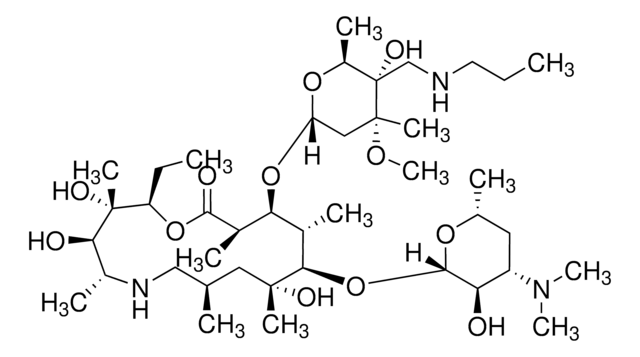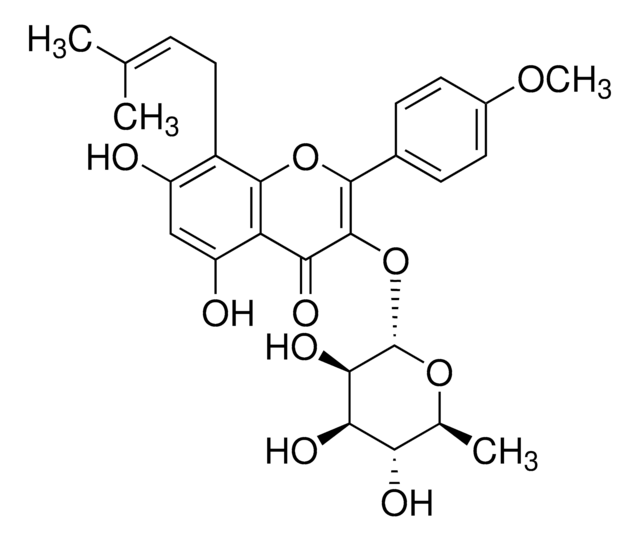80198
Methoxatin disodium salt
≥97.0% (HPLC)
Synonyme(s) :
PQQ, Pyrrolo-quinoline-quinone disodium salt
About This Item
Produits recommandés
Source biologique
fermentation/recombinant
Niveau de qualité
Pureté
≥97.0% (HPLC)
Forme
powder
Couleur
red-brown to deep orange
red-brown to deep red-brown
Température de stockage
2-8°C
Chaîne SMILES
OC(=O)c1cc(nc2C(=O)C(=O)c3cc([nH]c3-c12)C(=O)O[Na])C(=O)O[Na]
InChI
1S/C14H6N2O8.2Na/c17-10-4-2-6(14(23)24)15-8(4)7-3(12(19)20)1-5(13(21)22)16-9(7)11(10)18;;/h1-2,15H,(H,19,20)(H,21,22)(H,23,24);;/q;2*+1/p-2
Clé InChI
UFVBOGYDCJNLPM-UHFFFAOYSA-L
Description générale
Application
- Safety assessment of a novel, dietary pyrroloquinoline quinone disodium salt (mnemoPQQ): This study investigates the safety profile of Methoxatin disodium salt, which has implications for its application in assay development for clinical and diagnostic purposes. Specifically, it addresses the compound′s use in dietary supplements and potential crossover into clinical assays where safety and toxicity are paramount (Shiojima et al., 2022).
Actions biochimiques/physiologiques
Code de la classe de stockage
11 - Combustible Solids
Classe de danger pour l'eau (WGK)
WGK 3
Point d'éclair (°F)
Not applicable
Point d'éclair (°C)
Not applicable
Équipement de protection individuelle
Eyeshields, Gloves, type N95 (US)
Certificats d'analyse (COA)
Recherchez un Certificats d'analyse (COA) en saisissant le numéro de lot du produit. Les numéros de lot figurent sur l'étiquette du produit après les mots "Lot" ou "Batch".
Déjà en possession de ce produit ?
Retrouvez la documentation relative aux produits que vous avez récemment achetés dans la Bibliothèque de documents.
Notre équipe de scientifiques dispose d'une expérience dans tous les secteurs de la recherche, notamment en sciences de la vie, science des matériaux, synthèse chimique, chromatographie, analyse et dans de nombreux autres domaines..
Contacter notre Service technique







